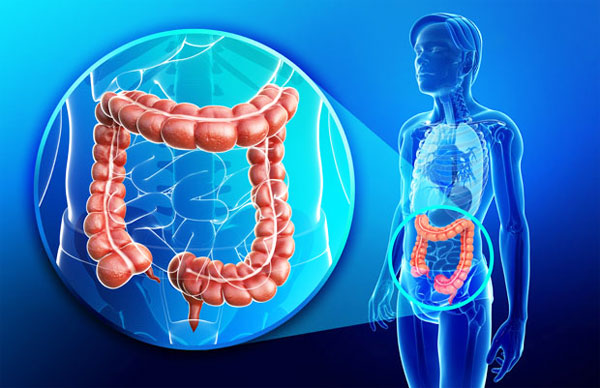What Are Colorectal Diseases?
Colon and rectum combine to form the bowel. The purpose of the bowel is to eliminate the waste material after digestion. There are several conditions that affect the functioning of colon and rectum. If the disease is confined to colon, the condition is known as colon disease. Disease confined only to rectum is known as rectal disease. However, some diseases affect both the colon and the rectum. Such diseases are termed as colorectal diseases. Some of the examples of colorectal diseases include colorectal cancer, colon polyps, Ulcerative colitis, and Crohn’s disease. The patients with colorectal diseases experience several symptoms. These are abdominal pain, blood in the stool, rectal bleeding, and prolong constipation and diarrhea.

What Are The Causes Of Colorectal Diseases?
There are several causes of colorectal diseases. Some of them are:
- Age: Although colorectal disease may occur at any age; however people above the age of 50 years are at increased risk for developing colorectal diseases.
- Family history: Various colorectal diseases run in families. Examples of such diseases are colon polyps, and colon cancer.
- Inactive lifestyle: The risk of colorectal diseases increases with sedentary and inactive lifestyle. Such people have poor bowel movement. Thus, the waste material remains in the colon for prolong period and causes diseases.
- Smoking and intake of alcohol: Smoking and excessive consumption of alcohol increases the risk of colon polyps and colon cancer.
- Genetic mutations: Mutations in the genes may results in the development of colon polyps. Such polyps have high risk of progressing to colon cancer.
- Obesity: People who are obese and overweight have the increased tendency of excessive cellular growth in the colon. This may result in colorectal diseases.
When The Doctor Recommend Colorectal Surgeries?
There are several conditions when the doctor recommend colorectal surgeries. Some of the conditions are:
- Hemorrhoids: Patients suffering from hemorrhoids have swollen veins either inside or outside the rectum. The doctor may recommend hemorrhoidectomy (removal of hemorrhoids) when non-invasive methods are not useful.
- Colon and rectal cancer: The doctor recommend the patient to undergo surgery in case of colon and rectal cancer. During the surgery, the doctor may remove one (sigmoidectomy) or multiple (Abdominoperineal resection) organs.
- Inflammatory bowel disease: In advanced inflammatory bowel disease, when there is a damage of the lining of the gastrointestinal tract due to chronic inflammation, the doctor may recommend surgery. The patient may undergo colectomy in case the inflammation is confined to colon. However, if there is also a damage to rectum due to inflammation, the doctor may perform proctocolectomy.
- Other diseases: Other disease that requires surgical interventions includes Cecal volvulus, Diverticular disease, Ischemic colitis, Precancerous condition of colon, and Colon Trauma.
What Are The Various Types Of Colorectal Surgeries Available In Delhi?
Almost all the colorectal cancer are available at various hospitals in Delhi. You should consult with the best Following are some of the colorectal surgeries available in Delhi:
- Right hemicolectomy: The procedure for removing the colon from one side is known as hemicolectomy. During the right hemicolectomy, the doctor removes the right side of the colon and joins the remaining part of the colon with small intestine. The doctor performs this procedure in case of colon cancer or severe damage to the colon. If the patient is suffering from severe appendicitis that has affected the colon, the doctor may also remove the colon along with the appendix.
- Left hemicolectomy: During the left hemicolectomy, the surgeon removes the left cancerous or damaged part of the colon and joins the remaining part. The doctor may also remove the surrounding lymph nodes if the cancer has been suspected to invade the lymph nodes. The surgery takes around two to four hours. However, it may take longer if you have any underlying medical complications.
- Sigmoidectomy: Sigmoid section is the terminal part of the colon nearest to the rectum and anus. Procedure to remove this part of the colon is known as sigmoidectomy. Doctor may perform this procedure in several diseases, such as inflammatory bowel disease. The doctor removes the damaged part of the sigmoid section and rejoins the healthy part of the colon to the rectum.
- Low anterior resection: The doctor performs the lower anterior resection surgery to treat the rectal cancer. During this surgery, the doctor removes the cancerous part of the rectum and joints the healthier rectum with the colon. During the open surgery, your doctor makes one long incision on your abdomen to gain access to the rectum and remove the cancerous part of rectum.
- Abdominoperineal resection: This is a major surgery during which the doctor removes the rectum, anus, and sigmoid colon. The doctor performs this procedure in case of cancer that spread to these organs. The doctor creates the stoma after the surgery. After few days your digestive system becomes active again.
How to Prepare For Colorectal Surgeries?
The preparation for the surgeries depends upon the type of colorectal surgery. You should follow all the instructions of your doctor before surgery. The doctor may perform comprehensive evaluation prior to surgery and your vital parameters are analyzed. Inform the doctor about the medicines you are taking. The doctor instructs you not to eat or drink 12 hours prior to surgery.
How Is The Recovery After Colorectal Surgeries?
Once the surgery is completed, you will be shifted to the ICU for monitoring. Once your vitals are stable, you will be shifted to the general ward. The doctors may allow you to drink fluid 24 hours after the surgery. The catheter is removed two-three days after the surgery. The doctors may encourage you to walk next day after surgery. You may discharge from the hospital within four to five days after the surgery. The doctor may call you for the follow-up fifteen days after the discharge.
What Are The Complications Of Colorectal Surgeries?
Colorectal surgery is a major surgery. You may have complications during or after the surgery. Some of the complications include infection, bleeding, loss of muscle function in the colon, and leakage from the connected colon.
How Do I Get More Information About The Colorectal Surgery?
To get more information about the diseases or the surgical procedure, we request you to Contact us.
Tag = Colorectal surgeon in Delhi, GI Surgeon in Delhi, Colorectal Surgery in Delhi
For more information = https://www.gastrodelhi.com/
- What are the causes of pancratic diseases?
- Gallstones treatment and gallbladder stone surgery in delhi at gastrodelhi
- What are the various diseases treated with laparoscopic colorectal surgery in delhi?
- Dr. neeraj goel is the best cancer surgeon in delhi, india
- Robotic surgery in delhi by dr. neeraj goel at gastrodelhi
- Cancer surgeon in delhi - dr. neeraj goel at gastrodelhi
- Dr. neeraj goel, cancer surgeon in delhi at gastrodelhi
- Cancer surgeon in delhi, dr. neeraj goel, and gi surgeon in delhi | gastrodelhi
- How the doctor performs robotic surgery in delhi? | robotic surgery in delhi
- What are the various types of robotic surgeries available in delhi? - robotic surgery in delhi | gastrodelhi

 Comments (
Comments ( Category (
Category ( Views (
Views (